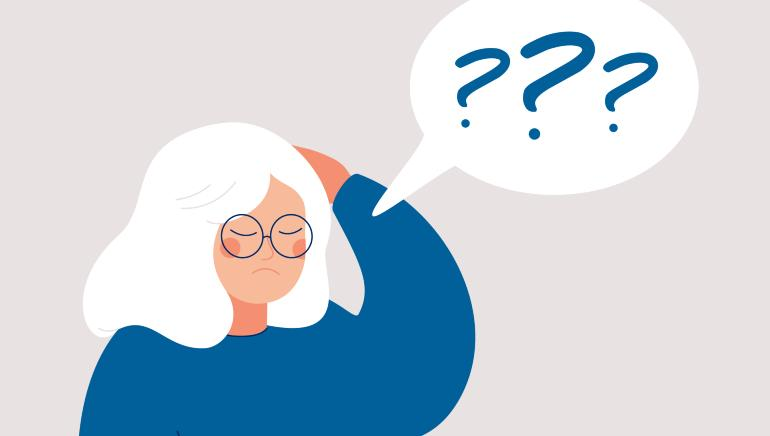Dementia

What is dementia?
Dementia is a general term for a decline in cognitive function that is severe enough to interfere with a person's daily life. Dementia is not a single disease, but rather a group of diseases that cause memory loss, thinking and behaviour changes.
What are the symptoms of dementia?
The symptoms of dementia can vary from person to person, but they may include:
- Memory loss: Difficulty remembering recent events, names, or faces.
- Confusion: Difficulty thinking clearly or understanding simple instructions.
- Changes in personality: Becoming withdrawn or irritable, or losing interest in activities once enjoyed.
- Trouble with language: Difficulty finding the right words, or using language in a way that makes sense.
- Changes in judgment: Making poor decisions, or having difficulty understanding the consequences of your actions.
- Problems with daily activities: Difficulty with activities of daily living, such as dressing, bathing, or cooking.
What causes dementia?
The exact cause of dementia is not fully understood, but it is thought to be a combination of genetic and environmental factors. Some environmental factors that may contribute to dementia include:
- Age: Dementia is more common in older adults, but it can occur at any age.
- Head injury: A head injury can increase the risk of developing dementia.
- Stroke: A stroke can damage the brain and lead to dementia.
- Alzheimer's disease: Alzheimer's disease is the most common type of dementia.
- Vascular dementia: Vascular dementia is caused by damage to blood vessels in the brain.
How is dementia diagnosed?
There is no single test for dementia, but a diagnosis is usually made based on a person's medical history, symptoms, and cognitive assessment. A team of professionals, such as a doctor, psychologist, and neuropsychologist, may work together to make a diagnosis.
How is dementia treated?
There is no cure for dementia, but there are treatments that can help manage the symptoms. Treatment for dementia may include:
- Medication: Medication may be used to treat some of the symptoms of dementia, such as memory loss or mood changes.
- Behavioral therapy: Behavioral therapy can help people with dementia learn new skills and cope with the changes that come with the disease.
- Support: Support groups and counseling can help people with dementia and their families cope with the challenges of the disease.
What is the prognosis for dementia?
The prognosis for dementia varies from person to person. However, the disease is progressive, and the symptoms will eventually worsen.
What are some tips for managing dementia?
- Talk to your doctor: If you are concerned that you or someone you know may have dementia, it is important to talk to your doctor. Your doctor can help you assess your symptoms and recommend the best treatment option for you.
- Educate yourself about dementia: Learning more about dementia can help you to understand your own symptoms and how to manage them. There are many resources available online and in libraries that can help you learn more about dementia.
- Find a support group: There are many support groups available for people with dementia and their families. These groups can provide you with support and encouragement, and they can help you to connect with other people who understand what you are going through.
- Be patient: It takes time and effort to manage dementia. Be patient with yourself and with your loved one.